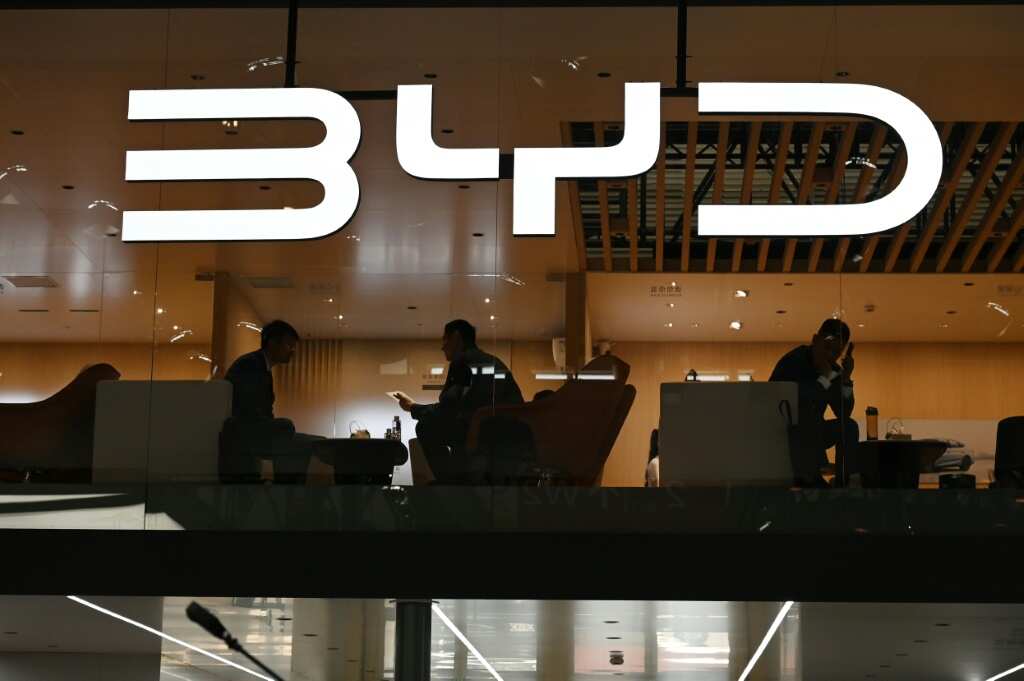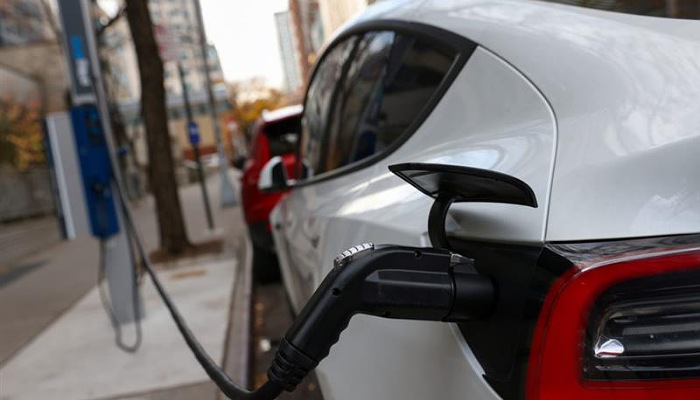
Photo: GREG BAKER / AFP
Source: AFP
China’s electric vehicle giant BYD opened a factory in Thailand on Thursday, continuing its international expansion despite a market slowdown and hours before the European Union was due to impose swingeing tariffs on Chinese EV firms.
The plant in Rayong, an industrial area southeast of Bangkok, will be able to build up to 150,000 vehicles a year, according to the company, which dominates its domestic market.
Wang Chuanfu, Shenzhen-based BYD’s chief executive, said production would initially focus on full electric vehicles and later expand to include plug-in hybrids, which combine a conventional engine with an electric motor.
“BYD Thailand plant has an annual capacity of 150,000 vehicles, including the four major processes of vehicle and parts production, and will create about 10,000 jobs,” Wang said at an opening ceremony.
The move comes as Thailand seeks to shift its longstanding auto sector away from conventional vehicles and towards EV production.
BYD overtook Elon Musk’s Tesla in the fourth quarter of 2023 to become the world’s top seller of electric vehicles.
PAY ATTENTION: Сheck out news that is picked exactly for YOU ➡️ find the “Recommended for you” block on the home page and enjoy!
Tesla reclaimed top spot in the first quarter of this year, but BYD is bullish about its expansion, insisting last month it would press ahead with a second factory in the EU.
The Chinese automaker recorded a record annual profit of 30 billion yuan ($4.1 billion) last year, but in April reported lower than expected revenue for the first quarter of 2024.
BYD has faced a bitter price war in China, where a staggering 129 EV brands are slugging it out — with only 20 achieving a domestic market share of one percent or more, according to Bloomberg.
China has led the global shift to electric vehicles, with almost one in three cars on its roads set to be electric by 2030, according to the International Energy Agency’s annual Global EV Outlook.
But European regulators have raised concerns about what they say is “overcapacity” created by excessive state subsidies.
Seeking to protect European manufacturers from cheaper Chinese imports, Brussels has proposed a provisional hike of tariffs on Chinese manufacturers: 17.4 percent for BYD, 20 percent for Geely and 38.1 percent for SAIC — in addition to the current 10 percent import duty.
EU and Chinese trade chiefs held talks last weekend in a bid to avert a bitter trade war, but the tariffs are set to come into force on Thursday.
But while they are high, the EU tariffs are significantly lower than the 100 percent rate the United States imposed from last month on Chinese electric cars.
Source: AFP









